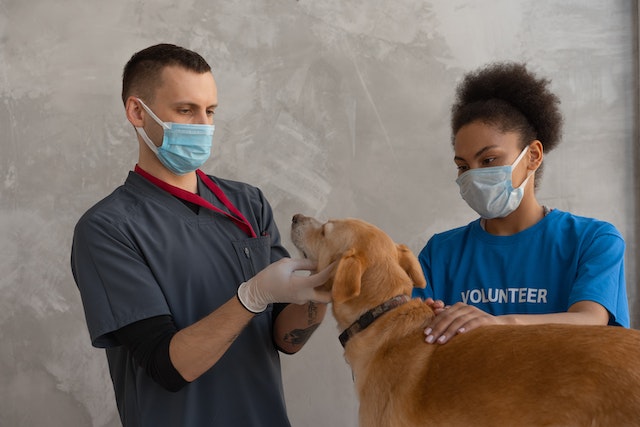You’re a pet owner faced with hefty vet bills and also a homeowner contemplating a reverse mortgage. You might not realize these two aspects of your life can intersect. It’s true, reverse mortgages can help you manage those escalating veterinary expenses. We’ll explore how this financial tool can ease your burden, with practical examples and important considerations. Get ready to discover this unexpected, yet beneficial connection.
Key Takeaways
- Reverse Mortgage Palm Springs can be a solution for homeowners to manage veterinary expenses.
- Pet insurance may not cover all procedures and can have high deductibles, making a reverse mortgage a useful supplement.
- Homeowners aged 62 or older can benefit from using a reverse mortgage to cover veterinary costs.
- It is important to understand the terms of a reverse mortgage, including interest rates and fees, and consider the impact on home equity and inheritances.
Understanding Reverse Mortgages
The concept of a reverse mortgage might seem complex, but it’s essentially a loan you can take out against your home’s equity that doesn’t need to be repaid until you move out or pass away. This financial tool is governed by specific Mortgage Legislation, designed to protect seniors during their Retirement Planning. It’s crucial to understand this legislation, as it sets forth the rights and obligations of the borrower. A reverse mortgage can be a remarkable resource, providing you with extra income while you still reside in your home. It’s an option worth considering if you’re a homeowner approaching retirement age and you’re worried about outliving your savings. Now, let’s delve into how this can be especially beneficial when dealing with the rising veterinary care costs.
Rising Veterinary Care Costs
In light of your potential need for a financial buffer, you’ve likely noticed the significant rise in veterinary care costs over the years. This increase is attributed to several factors:
- Advanced medical technologies that come with higher costs
- Increased demand for specialty services, like oncology or cardiology
- The introduction of alternative therapies and their associated costs
- Pet insurance benefits, which can be a double-edged sword, as they can also drive up costs
You’re not alone in feeling the financial strain these factors can cause, and it’s vital to explore all options that can help you manage these expenses. Now, let’s delve deeper into the unexpected intersection of reverse mortgages and veterinary costs.
Unveiling the Unexpected Intersection
Often, you may not realize that a reverse mortgage can serve as a viable solution to help manage your soaring veterinary expenses. This unexpected intersection between housing wealth and pet care provides a form of financial security, allowing you to tap into your home’s equity to fund veterinary costs.
Admittedly, pet insurance is a useful tool, but it doesn’t cover every procedure and can come with high deductibles. A reverse mortgage, on the other hand, can supplement these gaps, providing funds without requiring monthly repayments. It’s an option that’s worth considering, especially if you’re a homeowner aged 62 or older. This intersection, once unveiled, offers an innovative approach to securing your pet’s health while preserving your financial stability.
Practical Examples and Considerations
To help you understand how this works, let’s delve into some practical examples and important considerations of using a reverse mortgage for veterinary expenses.
- Financial Planning: Understand your retirement savings and monthly budget. The funds from a reverse mortgage can help cover unexpected vet bills.
- Pet Insurance: Consider purchasing pet insurance to offset costs. A reverse mortgage can help pay the premium.
- Loan Terms: Be fully aware of the terms of your reverse mortgage, including interest rates and fees.
- Impact on Heirs: Remember, a reverse mortgage reduces home equity, which could impact inheritances.
These points should be carefully evaluated in concert with your overall financial strategy. Using a reverse mortgage for veterinary expenses might be the unexpected solution you need.
Conclusion
So, you see, reverse mortgages offer a surprising solution to soaring vet bills. Picture this, your beloved Fido needs surgery. Stressed about costs? No need. By leveraging your home’s equity through a reverse mortgage, you can cover those unexpected expenses. A practical, yet underutilized strategy, it’s worth considering in your financial toolkit. Remember, your pet’s health doesn’t have to become a financial burden. Think outside the box, and explore the potential of reverse mortgages.
